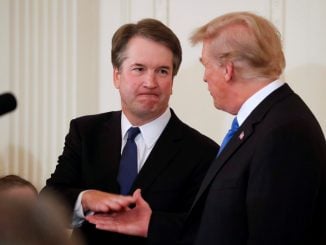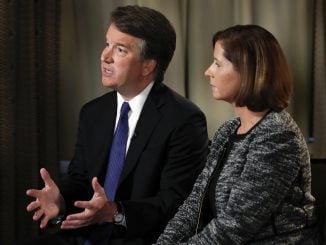
After months of chipping away at his lead in the Democratic presidential race, Sen. Elizabeth Warren (Mass.) has caught up with Joe Biden. The two now trade places with each other daily for the top spot on the Real Clear Politics polling averages.
Along with Warren’s rise has naturally come more questions about both her voting record and public statements she’s made over the years.
This happens with all candidates for higher office, but in Warren’s case, some of her defenders believe the skepticism of her comments equates to “sexism.”
On the campaign trail recently, Warren has told a story about how she allegedly faced pregnancy discrimination in the early 1970s. Warren stated in so many words she was not invited back for a second year of teaching by the Riverdale, New Jersey, Board of Education because she was “visibly pregnant” her first year.
But records obtained by conservative website Free Beacon directly contradict her claims. In fact, a story Warren herself told in 2007 about her time teaching completely omitted the discrimination claim, making the decision not to teach in the second year sound like one she made herself.
Had this been an offhand story Warren mentioned in passing, perhaps digging into the details wouldn’t have been important, but as the Free Beacon noted, she’s made the story “a cornerstone of her stump speeches.”
Furthermore, they note, “[Warren] has used [the story] to both explain her jump from teaching into the legal world as well as to showcase the difficulties that women face in the workplace.”
In other words, it is entirely worthy of the scrutiny it has received.
But others, like CNN political analyst Brandon Tensley, disagree. In a piece lamenting the unfairness of female candidates being questioned on their records and past statements, Tensley asserted Warren’s story was being second-guessed as “if there’s some reason to doubt that a school in the early 1970s would fire a pregnant woman.”
Apparently we should have no reason to doubt or question Warren’s story because it happened to other women at the time or something. As if it happening to some women means it has happened to all of them.
What was worse, according to Tensley, was that the questioning boiled down to what he called the “tradition of sexism in the guise of scrutiny.” Warren, he implied, was being treated as an “unreliable narrator” of her own story.
What Tensley and other left-leaning critics who agree with him (including Warren) conveniently leave out is that this type of digging into a public figure’s history is not unique to women.
Mitt Romney was skewered by Democrats and their mainstream media allies when he ran for president in 2012 over stories of alleged “homophobic” haircutting incidents from his days in prep school in the 1960s.
Brett Kavanuagh’s SCOTUS nomination was almost derailed over false allegations of sexual misconduct and assault that dated back to the early ’80s. Democrats turned his life upside down trying to disqualify him from the bench by second-guessing every single claim he made about his high school and college years.
It’s both infantilizing and demeaning to suggest women who run for — or who are nominated for — higher office be subjected to a softer, gentler form of scrutiny than their male counterparts. True equality means being treated to the same standards across the board.
This is not to say sexism doesn’t exist, but if you’re running for office and make something a central part of your campaign, you can best believe it’s going to get questioned and dissected to the nth degree.
Besides, after the bogus tale Warren spun about her fake Native American heritage, it’s only fitting she face skepticism on other claims she makes. She has no one to blame but herself for the scrutiny she receives now.
Stacey Matthews is a veteran blogger who has also written under the pseudonym Sister Toldjah and is a regular contributor to Red State and Legal Insurrection.




